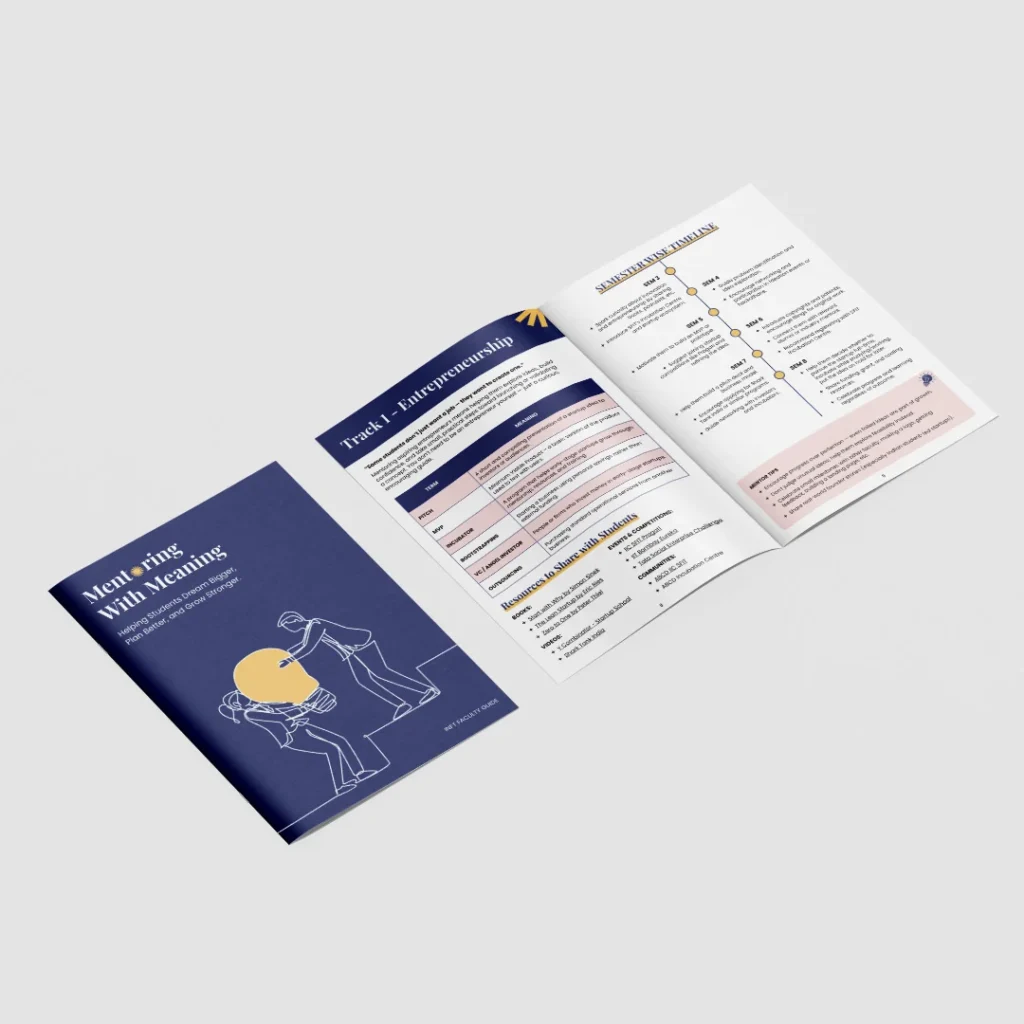Reimagining Mentorship Through Powerful Design
Mentorship isn’t broken but it’s not resonating either. In many institutions, mentorship is treated as a checkbox: assign a faculty advisor, schedule two meetings a year, file the report. Meanwhile, students, especially Gen Z students, are looking for authentic guidance, real conversations, and human connection.
According to a recent study, meaningful mentorship increases student satisfaction, retention, and post-graduation success. Yet most programs lack emotional depth, design clarity, and tone that actually appeals to today’s learners.
Watch: Why mentorship needs a rebrand for Gen Z | Adam Henckler | TEDxYorkBeach – a powerful case for rethinking mentorship language and delivery.
Understanding Today’s Students
What Gen Z Students Expect
- Personalized guidance: They crave tailored conversations, not generic advice.
- Ongoing engagement: A once-a-semester check-in just doesn’t cut it.
- Psychological safety: They need mentors they can be honest with, without fear of judgment.
- Design-forward experiences: Presentation matters – interfaces, emails, dashboards, and handbooks should feel intuitive and thoughtful.
Where Traditional Mentorship Falls Short
- Too formal, overly academic tone
- Poor visual materials or uninviting touchpoints
- Lack of cross-generational communication training
- No emotional branding or storytelling involved
Designing the Modern Mentorship Experience

Great mentorship isn’t just about scheduling meetings, it’s about designing connection. And that starts with the way it looks, feels, and sounds.
Reframe the Tone
Language is everything. Replace dry institutional language with empathetic, human tone. Instead of:
- “Please meet your assigned faculty advisor by midterm week,” try
“Your mentor’s here to guide, listen, and help you grow, schedule a chat anytime.”
Use messaging that communicates trust, warmth, and relatability.
Rethink Visuals and Interfaces
Whether it’s a mentorship portal, dashboard, PDF guide, or event banner, make it appealing:
- Use warm, inclusive colors and typography.
- Showcase real mentor-mentee pairs through testimonials or video clips.
- Design mobile-first interfaces for appointment booking, session notes, and feedback.
Inspiration Tip: Use storytelling visuals like those we create at EvolvEd Services to bring student-faculty relationships to life.
Create Consistent Touchpoints
Think beyond just the mentor-mentee meeting.
Design every interaction like a branded experience:
Touchpoint | Strategy | Design & Tone Tip |
|---|---|---|
Welcome Email | Invite mentees to connect | Use informal yet respectful tone |
Mentorship Handbook | Explain expectations | Visual flowcharts + minimal jargon |
Mid-Sem Check-ins | Measure connection quality | Simple forms with open-ended feedback |
End-of-Year Storytelling | Celebrate growth | Feature mentor-mentee spotlights |
Each interaction should reinforce the values of growth, trust, and belonging.
Mentorship Beyond Students: Include Faculty & Alumni
Great design benefits all stakeholders.
- Faculty mentors can be trained with branded toolkits and tone guidelines.
- Alumni mentors feel more engaged through beautifully designed platforms and can be roped in as mentors by running campaigns.
Watch: How to Be a Great Mentor | Kenneth Ortiz | TEDxBethanyGlobalUniversity – practical wisdom for elevating every mentorship interaction.
The EvolvEd Approach to Rebranding Mentorship

At EvolvEd, we help colleges design mentorship like a movement and not just a formality. Our team blends brand tone, digital design, and experience thinking to help institutions:
- Craft emotionally intelligent tone for all touchpoints
- Design mentorship portals and print materials
- Build storytelling campaigns that celebrate mentor-mentee journeys
- Integrate alumni, parents, and industry voices into your mentoring ecosystem
Conclusion: Mentorship is a Brand -Design It Like One
When done right, mentorship is one of the most inspiring parts of a student’s journey. But it won’t happen through chance, it must be intentionally crafted.
Through human tone, consistent design, and stakeholder-inclusive thinking, colleges can transform mentorship from a formality into a brand-defining force.
Students will feel it. Faculty will support it. Employers will notice it.
And your institution? It’ll be remembered as one that truly cared.
Ready to Rebrand Mentorship at Your Institution?
Let EvolvEd help you build mentorship experiences that feel personal, scalable, and unforgettable.




